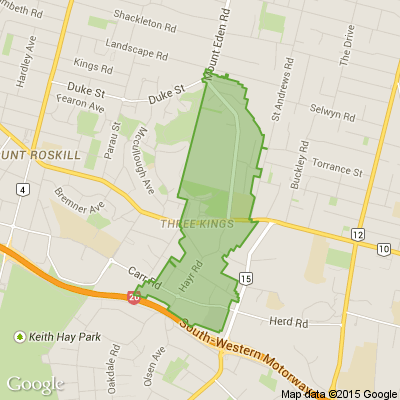Record numbers are leaving NZ – who could blame them?
Migration figures show a record number of New Zealanders are choosing not to stick around – and you don’t have to look hard to figure out why, writes Q+A presenter Jack Tame.
No data point says more about the current state of our country than the fact that record numbers of New Zealanders don’t want to be here.
Over the last two years, the quarterly release of migration statistics has steadily plotted a massive exodus of New Zealand citizens.
Once all citizen returns and departures were accounted for in the year to March 31, provisional net numbers indicated New Zealand lost more than a thousand Kiwis every week.
But why?
========
The pandemic restrictions are over and the borders have been open for New Zealanders for more than two years.
Pent-up demand for overseas adventure could explain the initial post-Covid surge in departures, and some New Zealanders who returned during the worst of Covid-19 have left again. But the more recent departures are better attributed to other factors.
As I’ve noted before, what’s perhaps most extraordinary about the huge outward migration of New Zealand citizens is it has coincided with near-record inbound migration of non-citizens.
Facing pressure from business groups amidst a global labour shortage, the previous government responded by massively relaxing immigration settings.
In the year to March 31, New Zealand recorded a net migration gain of 163,000 non-citizens.
Accounting for both the provisional citizen and non-citizen migration flows, there are 111,000 extra people in New Zealand than the year before. Add to that the births and deaths for the same period, and our overall population has increased by approximately 130,000 people in the last year.
During the same period, however, the number of consents issued for new houses dropped 25% on the previous 12 months.
As our population surges and construction slows, the average rent paid by the generation of New Zealanders most likely not to own their own homes has increased. TradeMe Property recorded a median rent increase of 8.3% in the year to March 2024 — more than double the corresponding annual increase in wages.
This renting generation, coincidentally, is the same generation most likely to have left New Zealand.
Of all migrant departures of New Zealand citizens, people between the ages of 18 and 30 made up almost 40%.
But even older New Zealanders — who are more likely to have established careers, families, and assets — are leaving in huge numbers. Accounting for all arrivals and departures, a net total of more than 7500 New Zealand citizens between the ages of 31-40 left our shores.
So, what will stem the bleed?
=======================
In the short term, at least, there is perhaps little economic reason to stay.
The new Government has moved swiftly to tighten immigration settings but, as the full impact of higher interest rates seeps through the economy, unemployment is steadily increasing.
The national unemployment rate currently sits at 4.3% and most economists expect it to climb above 5% in the coming months. The Māori unemployment rate is already at its highest point in four years at 8.2%.
Young Zealanders now find themselves competing with more people for relatively fewer houses and relatively fewer jobs.
And, as we enter a winter of economic discontent, who could blame them for leaving?
====================================
www.1news.co.nz...
====================================
Poll: Are our Kiwi summer holidays helping us recharge, or holding the economy back? ☀️🥝
There’s growing debate about whether New Zealand’s extended Christmas break (and the slowdown that comes with it) affects productivity.
Tracy Watkins has weighed in ... now it’s your turn. What’s your take? 🤔

-
72% We work hard, we deserve a break!
-
16.3% Hmm, maybe?
-
11.7% Yes!
Which region in New Zealand is the most generous?
The most generous region in New Zealand for Givealittle donations has been revealed in a new report, which shows Kiwis gave $31.6 million to fundraisers this financial year.
The report has also highlighted some of the worthy causes that received money this year, including a woman who needed money for overseas cancer treatment, the Relief Aid Gaza Appeal, and a mayoral relief fund for flood-hit Wairoa.
While Auckland took out the top spot for the amount of money given, with $14.2m, the 2025 Generosity Report showed Gisborne and Northland gave the highest amounts per donation compared with the rest of the country.
Gisborne locals were the most generous, giving $108 on average per donation. Northland was the only other region to crack three figures, with residents donating an average of $100 each time.
“We are highly sympathetic to the challenges many Kiwi households have been dealing with this year, which has also been a hard one for charities, many other organisations, and whole industries,” Givealittle chief executive Lythan Chapman said.
The stories and statistics shared in the report captured a picture of “nationwide giving to nearly every conceivable cause”, she said.
“They are a reminder to us all that the generosity of New Zealanders is unflagging, and when people call for help they will be heard.”
The report showed Kiwis had a soft spot for giving to health-related causes, with 42% of donations going to such fundraisers, totalling $13.2m.
The most-supported page on Givealittle in the year ending June was for Wānaka woman Emma Holden, who needed funds to travel to Shanghai for cutting-edge treatment for her multiple myeloma blood cancer.
Her page raised more than $417,000 for the treatment in a short space of time, showing “how quickly New Zealanders rally when a life is on the line”, the report said.
Kiwis also gave generously to ReliefAid’s Gaza appeal, with more than $191,000 donated and up to $60,000 of donations matched. The support allowed the New Zealand-founded group to provide drinking water to about 60,000 people each month.
Seven of ReliefAid’s nine team members in northern Gaza were killed, while the surviving staff in the south continued their work despite losing homes and loved ones, the report said.
“The generosity and humanity of New Zealanders provided life-saving support for families who had nowhere else to turn,” said ReliefAid founder Mike Seawright.
A popular community-focused cause was the Wairoa mayoral relief fund, started after the town was hit by severe flooding in June 2024.
More than $282,000 was raised across 2152 donations, providing immediate relief for food, shelter and essential supplies.
“This campaign demonstrates how generosity responds not just to individuals, but to entire communities in crisis. It shows the power of collective giving to help towns rebuild after disaster and the Wairoa community has been overwhelmed with the support and kindness they received,” the report said.
Other causes highlighted in the report included the Papakōwhai School’s annual Readathon, which raised $26,000 in one month to bolster funds for teaching assistants and librarians, and the “Power the Brigade” campaign started by Hillmac Electrical to support Havelock Volunteer Fire Brigade, raising more than $10,000.
How Kiwis gave in the 2025 financial year
=================================
$31.6m – total giving via the platform.
365,882 donations made.
$13.2m – the amount given to health-related causes, 42% of all giving.
$3.6m – given to community causes, 11% of all giving.
$14.2m – the amount given by donors in Auckland, the most of any region.
$108 – the average amount given by donors in Gisborne, the highest average in the country. Northland was the other region where average giving topped $100.
$86 – the national donation average.
$50 – the most common donation amount.
49 donations over $10,000
Board chairwoman Charlottle Lockhart said in the report generosity was not “a number on a page”.
“It is a hand offered when someone stumbles, a neighbour dropping off a meal, a community choosing to stand alongside one of its own. At its heart, generosity is about connection, it binds us together in ways that policy and systems cannot,” she said.
Living with a terminal cancer diagnosis herself, Lockhart said she understood “how fragile life is, and how much difference support can make”.
“These are not just statistics – they are lifelines.”
======================================================
Some Choice News!
Many New Zealand gardens aren’t seeing as many monarch butterflies fluttering around their swan plants and flower beds these days — the hungry Asian paper wasp has been taking its toll.
Thanks to people like Alan Baldick, who’s made it his mission to protect the monarch, his neighbours still get to enjoy these beautiful butterflies in their own backyards.
Thinking about planting something to invite more butterflies, bees, and birds into your garden?
Thanks for your mahi, Alan! We hope this brings a smile!








 Loading…
Loading…




